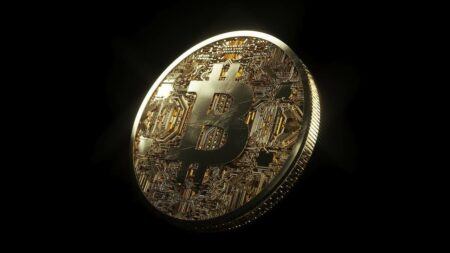Over the past week, the UK’s Financial Conduct Authority (FCA) published revised guidelines on its treatment of cryptoassets, payments provider Square revealed it generated $125 million in bitcoin sales in Q2, Bitcoin Cash celebrated the two-year anniversary of its fork from Bitcoin while one of its main proponents Roger Ver was replaced as CEO of Bitcoin.com and retail chain Walmart issued a patent for its own stablecoin.
UK regulator offers greater clarity
Following an extensive consultation period on its draft proposal issued in January, the UK’s leading financial regulatory body, the FCA, issued further guidance on its taxonomy of cryptoassets. The report outlined four main categories of assets – security tokens, utility tokens, stablecoins and exchange tokens – and affirmed that the body will not be applying additional regulation (above existing KYC and AML rules) over the trading of assets such as bitcoin and ether, which it classifies as exchange tokens.
Square sells $125 million bitcoin in Q2
Jack Dorsey’s stock among the Bitcoin community, already high after an impassioned tweetstorm in February, has risen again following his payments company Square’s quarterly earnings call. The results not only showed a significant rise in bitcoin purchases on the platform, up 240% over the same quarter last year, but also promptedDorsey to declare“We love you, Bitcoin!”.
Algorand offers buy back to early investors
In an attempt to repair the damage of its controversial Dutch Auction fund raise in June, the foundation behind the much-vaunted Algorand token has announced an ‘optional early redemption’ for investors. Participants in the auction can sell their token back to the foundation for 85% of the purchase price (significantly higher than the current price) on the condition they give up the 90% downside protection option they originally agreed to.
The long take
Are goldbugs really Bitcoin’s ‘target audience’?
This week, CNBC Africa held a debate between two prominent financial commentators and investors. On one side was the author and CEO of Euro Pacific Capital Peter Schiff. A man in his mid-50s sporting a gold watch and carrying a solid gold credit card, there are fewer better suited to argue the merits of the 3000-year-old asset. On the other side was the co-founder of Morgan Creek Digital Anthony ‘Pomp’ Pompliano. In his 30s, Pomp has become one of the foremost evangelists of Bitcoin, with a podcast amassing more than 1.5 million downloads and a much-memed twitter account that’s attracted more than a quarter of a million followers.
Despite the antagonistic prompts of host Ran NeuNer, the debate never really reached boiling point. Both men eloquently expressed their points and listened respectfully to the other side’s arguments. While they shared some (pessimistic) views on the macro-economic climate and the future of fiat currencies, there was little chance of either side abandoning their entrenched beliefs to switch their asset of choice.
The urge to convert goldbugs to Bitcoin has however become a source of obsession for the industry. A case in point is Grayscale’s #DropGold campaign and TV commercial, which poked fun at gold investors and sought to entice them over to gold 2.0. The video amassed an impressive 250k views on YouTube, though it is impossible to analyse what proportion of these views came from existing crypto enthusiasts versus gold investors, and attribute whether the latter subsequently purchased their first bitcoin as a result.
As the Bitcoin vs gold standoff will likely continue – at least while bitcoin continues to perform highly, we must ask: Is the push worth it? Clearly many advocates think so. Gold is an asset class worth $8 trillion, dwarfing Bitcoin’s ~$200 billion. A mass-scale portfolio rebalancing to switch out gold with bitcoin would likely have a profound effect on Bitcoin’s market cap. As bitcoin’s returns this year have far outpaced that of gold – roughly 300% to gold’s 15% – one may think it’s only a matter of time before more goldbugs yield to the greater ROI bitcoin’s volatility enables.
The counter argument here lies in the demographics. The profile of the average gold investor is markedly different from the predominantly millennial bitcoin holder. Figuratively speaking, it reflects the differing profiles of Peter Schiff and Anthony Pompliano. The two are so vastly different in their life experiences and worldview that it’s little surprise that the assets appeal in different ways to these respective groups. In essence, Bitcoin and gold live in different worlds.
That’s not to say that baby boomers and GenX aren’t interested in bitcoin, or that millennials shouldn’t take an interest in gold. It’s simply a case that the value each set of demographics typically places on physical assets vs digital assets creates a natural divide between the two camps.
What the two assets – and indeed, their respective evangelists – share is the firm belief that a non-sovereign store of wealth is essential in a world of interest rate cuts and quantitative easing. As the macro outlook leans towards greater depreciation of national currencies, one may suspect that both sets of investors will be satisfied with their allocations in the coming years.
Tweets of the week
Willy Woo explains a new metric on his popular Woobull site, the Difficulty Ribbon:
Introducing the Bitcoin Difficulty Ribbon. When the ribbon compresses, or flips negative, these are the best time to buy in and get exposure to Bitcoin. The ribbon consists of simple moving averages on mining difficulty so we can easily see the rate of change in difficulty. pic.twitter.com/6kBz4sLG1d
— Willy Woo (@woonomic) August 1, 2019
Rhythm Trader thinks Bitcoin is a lover, not a fighter:
Bitcoin is the largest peaceful protest in history.
— Rhythm (@Rhythmtrader) July 31, 2019
Alex Kruger calls out the perpetually bullish takes on major news events and global affairs on Crypto Twitter:
The crypto 2019 paradigm: every bit of news is interpreted as bullish.
— Alex Krüger (@krugermacro) August 1, 2019
Don’t miss
Parker Lewis of Unchained Capital explains why attempts to copy Bitcoin’s value proposition are destined to fail.
The World Computer should be logically centralized
Kyle Samani of Multicoin Capital explains the firm’s investment in high-throughput platform Solana.
John Lanchester explains the history of money from Kublai Khan to the present day.









